NYC mayoral hopefuls contemplate big changes to transportation for 2022
The way New Yorkers move around the city has been upended during the pandemic — and it’s up to the next mayor to navigate a transportation crisis unlike any other in history.
Mass transit ridership is down more than 60% and has cratered the Metropolitan Transportation Authority’s finances. Dozens of cyclists are killed in car crashes each year — a reality advocates blame on a lack of bike lanes. And buses continue to crawl along city streets at some of the slowest speeds in the country.
Some mayoral candidates support the city taking more control over the MTA, which is controlled by the governor. Absent that, the mayor has all but unilateral control over the streets, which account for roughly a quarter of city land mass.
Transportation is more of a focal point in this year’s race than it was in 2013 when Mayor de Blasio was first elected to City Hall, and according to experts, the transportation proposals from this crop of candidates could be pivotal to this year’s outcome.
“The changes we’ve seen in the pandemic has made transportation issues more important than in previous races,” said Jon Orcutt, the advocacy director of Bike New York, who previously served as the city Transportation Department’s policy director. “We need to manage our streets in a way the de Blasio administration has not.”
The Daily News reached out to several of the top mayoral candidates running in the June 22 Democratic primary. Here’s what they had to say.
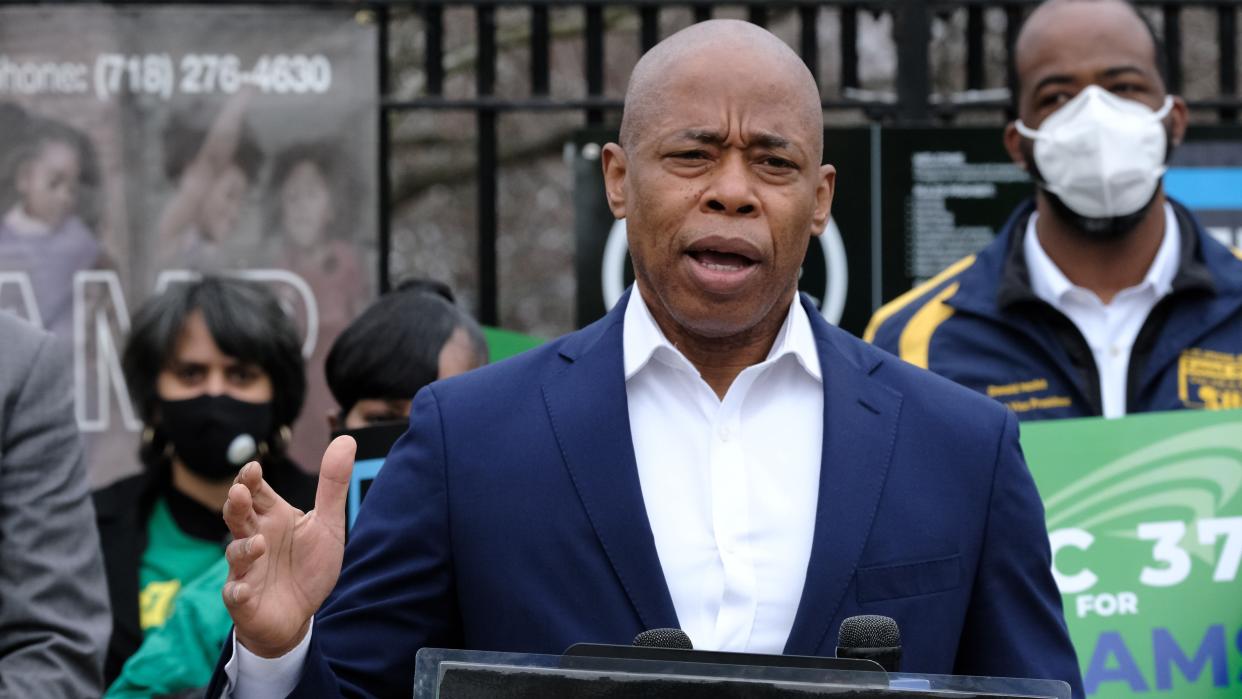
ERIC ADAMS
Brooklyn Borough President Eric Adams plans to remove highways that have choked city neighborhoods by building over trench routes like the Cross Bronx and Gowanus expressways and rerouting roads.
Adams views this as his most radical transportation proposal, but predicted it would help the city’s poor.
“We can pay for these fixes to past mistakes using a value-capture model that targets the increased property tax revenue created by removing urban highways,” Adams said.
The proposal is predicated on the idea that building a park or removing blight improves property values — so it essentially pays for itself through higher tax revenue.
Adams, a former state senator, also said the city should have majority control of the MTA and that he’d push to create more authority board seats for city reps, including new appointees for each borough.
“That is the fastest and simplest way to ensure the MTA is responsive to city needs,” he said.
He’s “not a fan” of Gov. Cuomo’s AirTrain project to LaGuardia Airport, or revisiting an extension of the N subway line to get people to the airport more quickly. Instead, he said a bus rapid transit network would better serve neighborhoods that lack public transport options while helping to ferry people to and from LaGuardia.
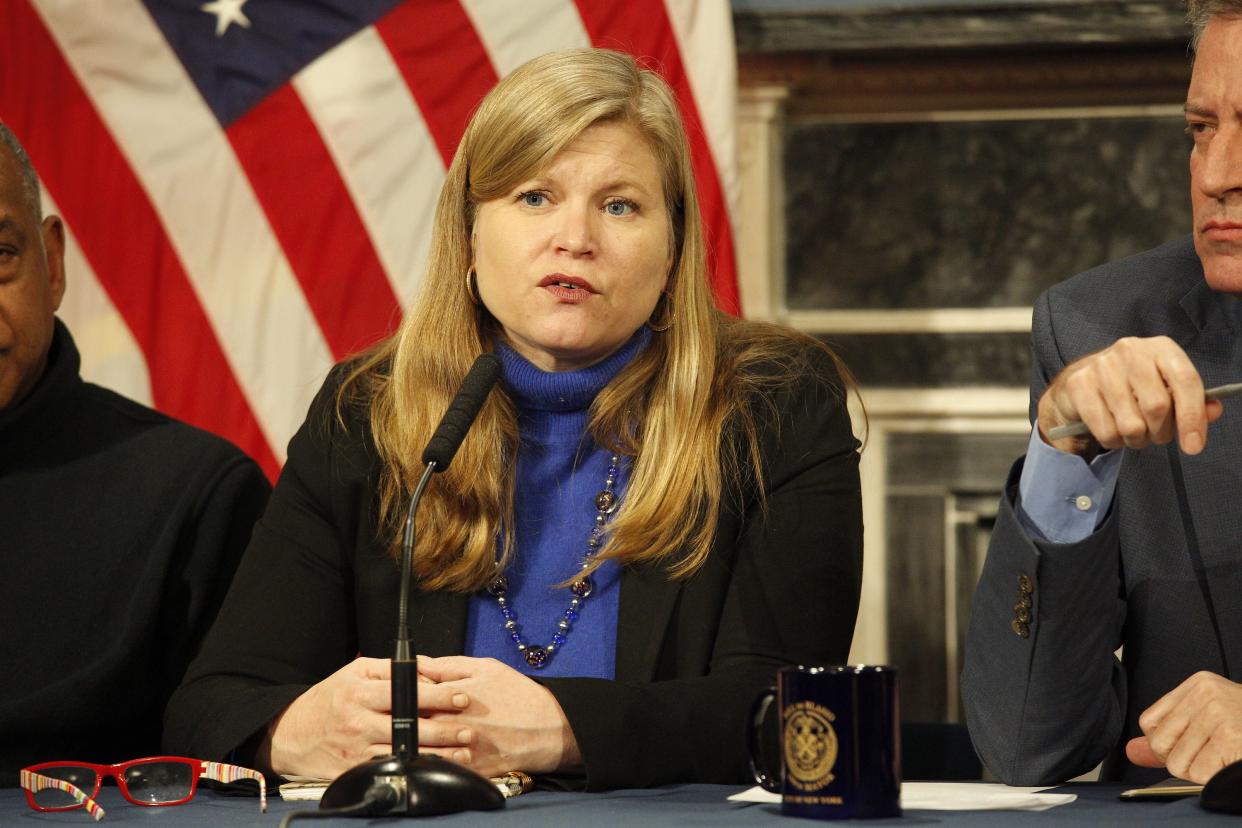
KATHRYN GARCIA
Garcia, who served as Mayor de Blasio’s sanitation commissioner, does not view taking control of the MTA as a priority, but is open to the idea — as long as the city can also take control of bridge and tunnel toll revenue.
More important, she said, is ensuring that bus service is improved, off-board payment for buses expanded, and LIRR and Metro-North service integrated into a one-swipe city transportation network.
“Jockeying for control of the MTA can come after we’ve done the critical work that needs to be accomplished right now,” she said. “Public transit has to be safe and has to be clean so that New York City residents will be confident in their ability to get back on the subway.”
Garcia supports a proposal calling for the conversion of 25% of street space used by cars into spaces designed with an eye toward pedestrians and cyclists.
“I’m the only candidate with the experience and understanding of how to pull the levers to make it happen,” she said. “We need to create an accountability framework: a deputy mayor who will be responsible for the effort, a dedicated team at the mayor’s office of operations to measure and report on the operational progress, and a collaborative team that is focused on eliminating the bureaucratic roadblocks.”
She’s against having crash investigations moved from the NYPD to the Transportation Department and promised to oversee the creation of 250 miles of protected bike lanes within four years.
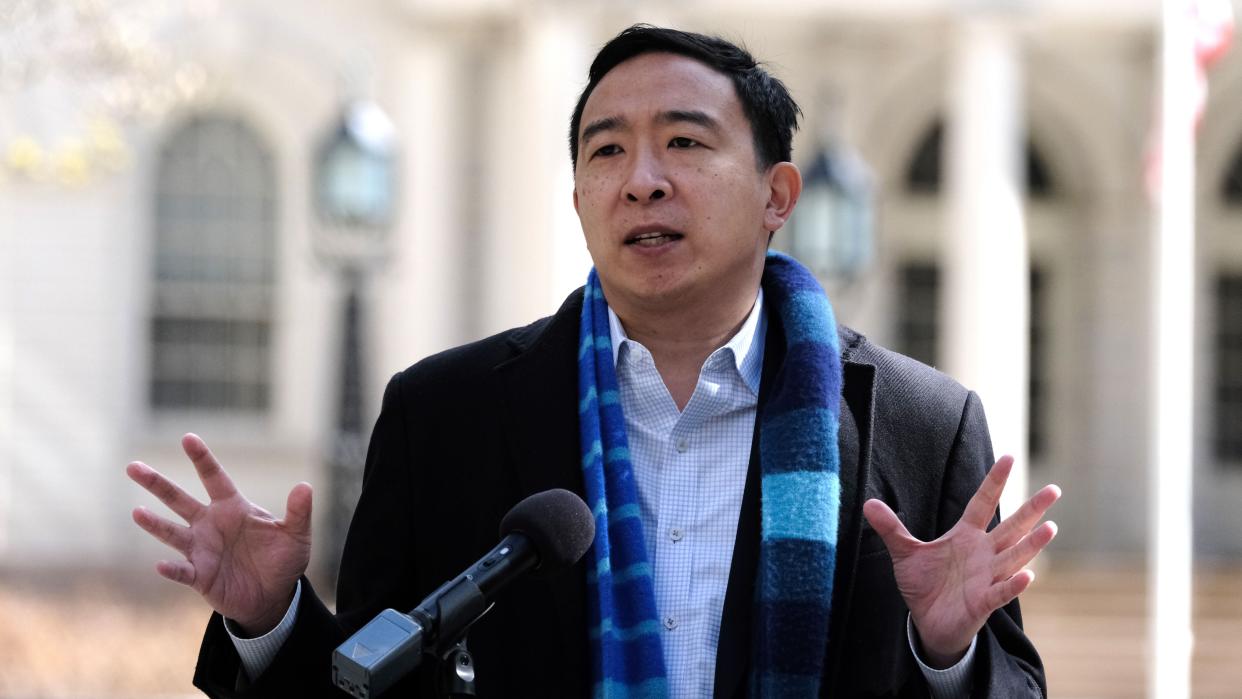
ANDREW YANG
Yang, a former presidential candidate, wants the city to take more control of the MTA and said putting more mayoral appointees on its board is one way to do that.
Still, each member of the MTA board must be approved by the governor and Senate, and changing its structure would require reforms at the state level.
“The mayor of New York City — not politicians in Albany — should be responsible for ending subway delays, fixing broken elevators and building a better subway system,” Yang said.
The way the city’s transit system operates could be more efficient, regardless of who runs the MTA, Yang said. He pointed to “a staggering number of redundancies between the vendors and contractors the MTA hires” as a waste of money.
He wants more bus and bike lanes to speed up service for commuters outside the subway — and said community boards shouldn’t be able to block their rollout so easily.
“I want to rapidly expand Bus Rapid Transit, I want to pedestrianize additional streets beyond the Open Streets implemented during COVID, and I want far more protected bike lanes that are truly protected,” he said.
But that pitch doesn’t entirely square with his promise to “reexamine” the busway launched in Flushing, Queens, last year after the city fought a lawsuit from business owners claiming that limiting traffic would hurt their bottom line.
Yang’s most outside-the-box pitch is to transform city streets by replicating Barcelona’s “superblocks” — large parcels where car traffic is banned or limited to free up space for pedestrians and cyclists.
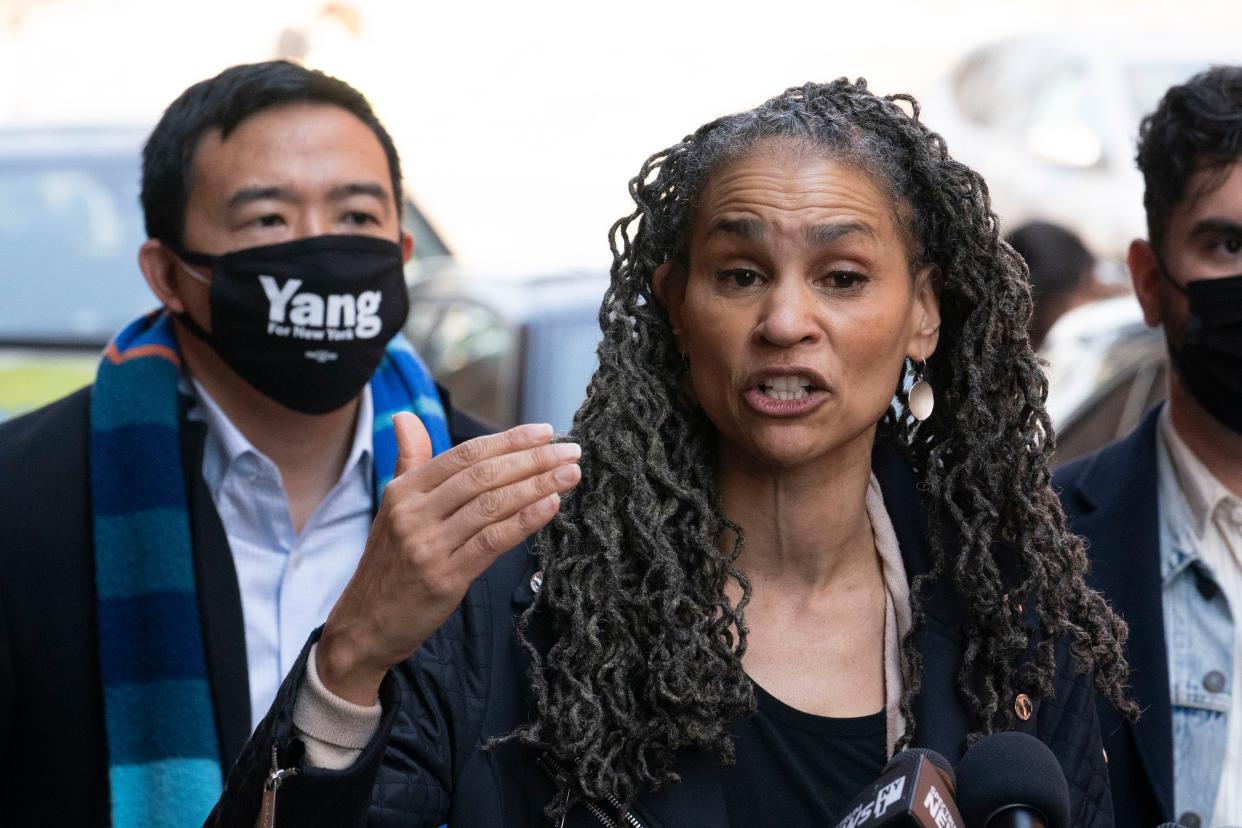
MAYA WILEY
Wiley, de Blasio’s former legal counsel, is floating transportation pitches far less radical than her rivals’ — but says her policy acumen means she’ll actually be able to achieve them.
She sees new bus lanes and bus-priority streets as the best way to make transit in New York City more equitable, and has proposed a batch of them in areas with limited access to the subway.
Wiley said her background as an attorney and community activist makes her more prepared than her rivals to fend off lawsuits over new bus lanes.
“The law is crystal clear on the side of the city in these cases, and the failure of recent attempts to block or delay expanded bus lanes has sent a strong signal that these civil suits are not viable,” said Wiley. “These attempts to block vital transit projects can be avoided through meaningful community outreach.”
Wiley also said she wants to establish a new Office of Public Space Management to act as a liaison with different agencies to roll out street redesigns more quickly.

SHAUN DONOVAN
Donovan, who held several senior roles in the Obama and Bloomberg administrations, painted the issue of city control of the MTA as a shallow campaign pitch.
“That’s a sound bite, not a solution,” he said. “The MTA serves areas beyond our city’s jurisdiction, and there’s no realistic way to pay for it.”
Donovan’s main transportation focus, instead, centers around creating “15-minute neighborhoods” where people “would have a great public school, fresh food, a park, quality health care and access to rapid transportation within 15 minutes of their front door.”
To create that, Donovan would aggressively install new bus and bike lanes to help people move faster and argued that community boards play a “critical role” in infrastructure and that their consideration would be taken into account.
Donovan supports the completion of de Blasio’s failed BQX streetcar line between Brooklyn and Queens, as well as his heavily subsidized NYC Ferry service, though he’d like to make the latter “more equitable.”
He opposes Gov. Cuomo’s AirTrain connection from the Mets-Willets Point subway station to LaGuardia Airport, and instead supports the extension of the N line to the airport — or the creation of a free express bus service there from Jackson Heights.

SCOTT STRINGER
The comptroller’s transportation platform centers around a pitch to build 350 miles of new bike lanes and 25 miles of new busways in just five years — a radical overhaul of city streets.
Stringer said he’d “streamline” the Transportation Department’s bureaucracy to get it done.
He wants the mayor to have more seats on the MTA board, but doesn’t think the city should take full control of the agency.
Stringer leaned on his experience in his current role overseeing the city’s contracts as proof he knows how to get projects done quickly. That experience, he said, would help ensure the MTA more efficiently constructs new subway lines — like the Second Ave. line extension, a long-proposed line below Utica Ave. in Brooklyn — and the extension of the N line to LaGuardia.
“I’d convene all the key utilities — Department of Environmental Protection, Verizon/ECS, Con Ed, and National Grid — to fully map their conduits and make a coordinated plan for expediting relocation of utility lines during construction,” said Stringer. “Then I’d demand fast and affordable construction from the MTA so they’re not disrupting communities for a decade.”
Stringer has for years taken issue with city subsidies for the NYC Ferry, which surveys show is mostly used by the wealthy. He promised to reduce its costs and reexamine its fare structure, which remains at $2.75.
“I’ve been a vocal critic of the giveaway ferry contract the mayor has established,” he said. “It’s time to review routes, rein in costs and rethink fares — and transfer responsibility to DOT.”
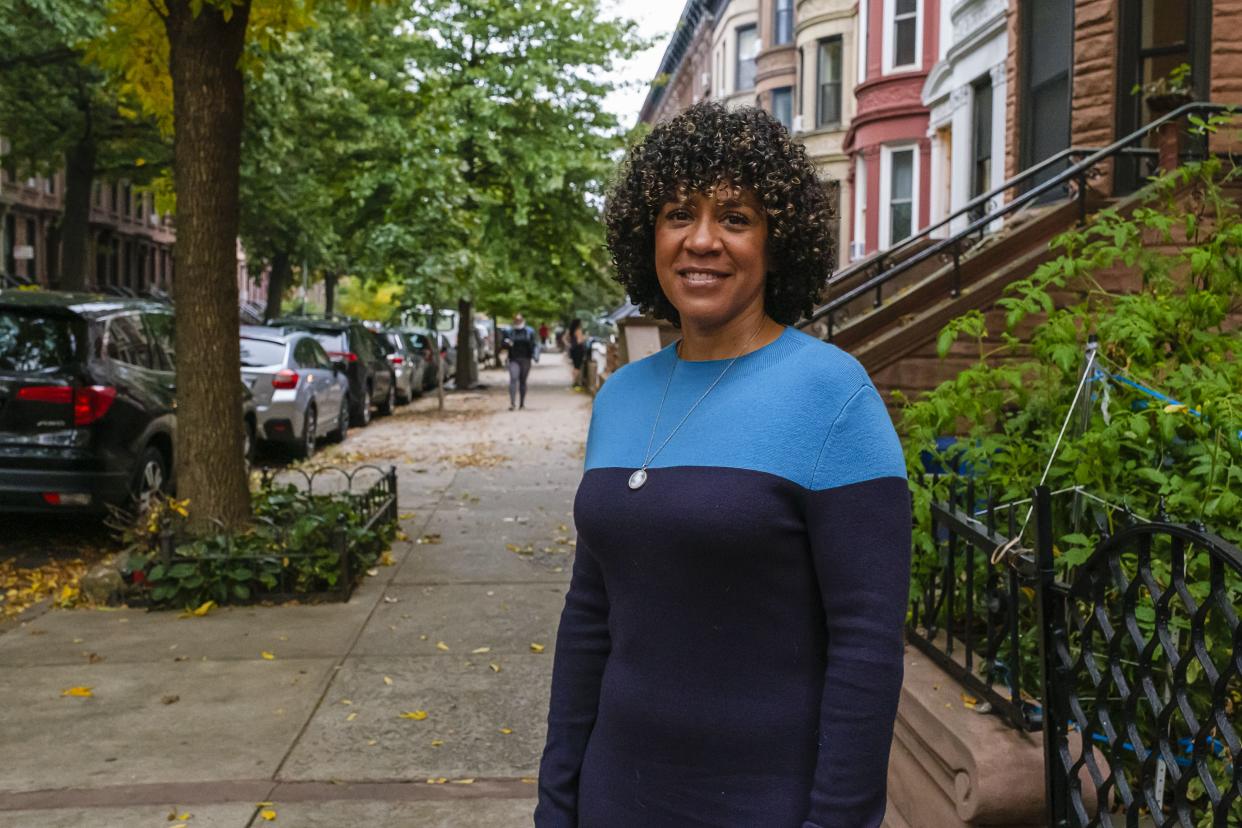
DIANNE MORALES
Morales wants the next mayor to assume full control of the MTA and said the state should delegate more taxing authority to the city to fund the authority. How she intends to do that if elected is less clear.
But, if the city were to take control, she intends to make transit more efficient by executing the Fast Forward plan from former NYC Transit President Andy Byford. Its goals — which are partially in motion through the MTA’s five-year capital plan — include overhauling outdated subway signaling systems in 10 years.
“We need to accelerate repairs to ensure that more subway lines — especially those serving marginalized communities — have state-of-the-art communications-based train control, which improves subway signals,” she said.
Morales, a former nonprofit executive, wants the NYPD removed entirely from investigating car accidents because “too often traffic stops for moving violations are the auspice for racial profiling, which leads to criminalization and violence against Black and Brown people.”
She wants an entirely electric fleet of city vehicles and is also in favor of strict enforcement against double-parking violations, but said the city’s ticketing program should be pegged to an offender’s income.
“A crime for the poor should be the same as a crime for the wealthy,” she said.
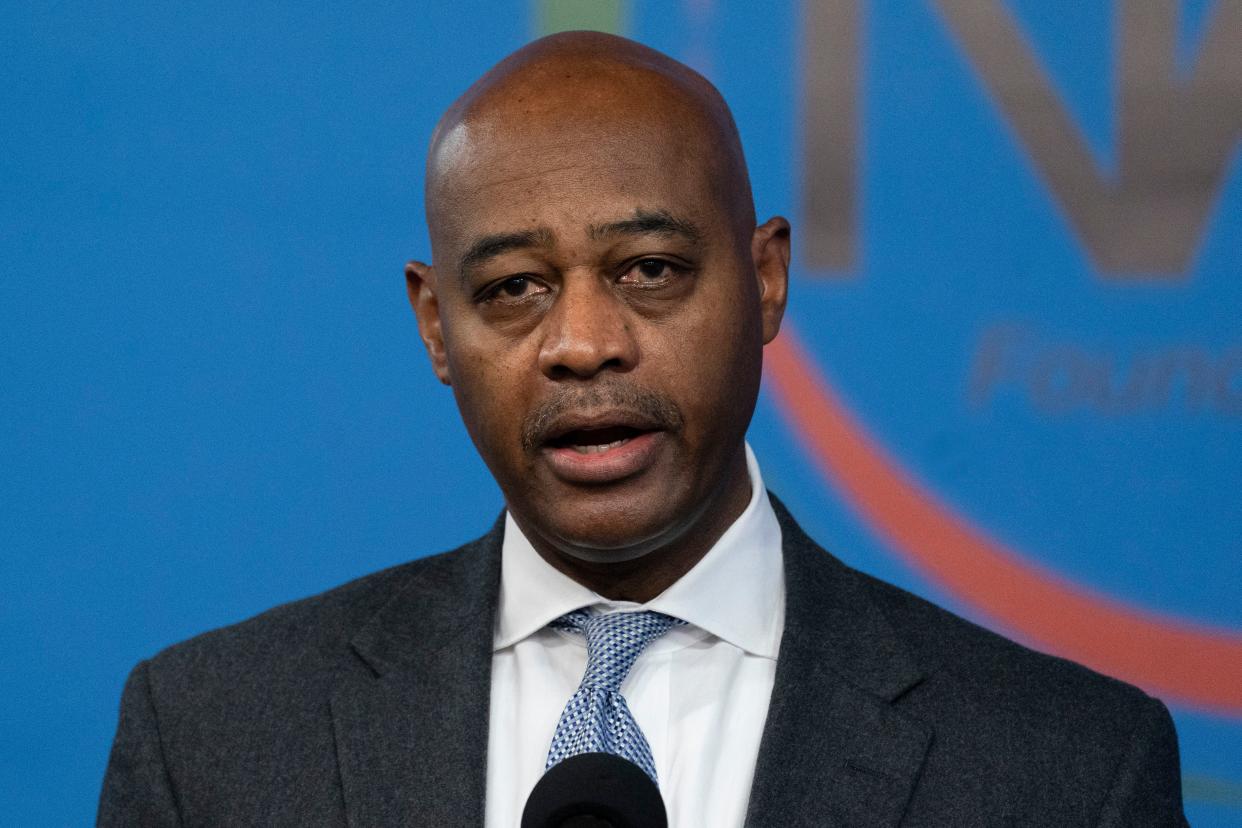
RAY McGUIRE
McGuire did not respond to The News’ questionnaire.
Check out our special section for the latest news on the critical 2021 elections in NYC. And to have the essential news and analysis sent to your inbox, sign up for our Campaign Diaries newsletter.
